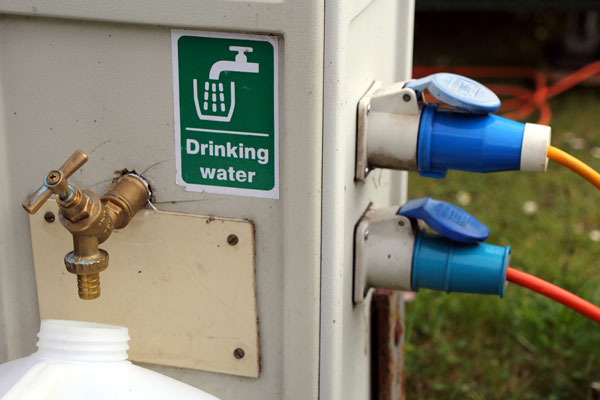Basic water and electricity services as key sectors for transformative recovery in Latin America and the Caribbean

Drinking water and electricity are basic services that proved essential to counter the impact of the COVID-19 crisis. At the same time, they represented an opportunity for investment to spur economic recovery in the countries of the region. Since the early months of 2022, they have been particularly threatened by the impact of the war in Ukraine on the world prices of fossil fuels, which are basic inputs for both sectors. Together with higher prices for edible oils, cereals and fertilizers, this has led to a rise in poverty and in energy, water and food insecurity in the region.
In Latin America and the Caribbean, large inequalities persist in access both to energy and to drinking water and sanitation, owing to a lack of high-quality supply infrastructure capable of providing water and energy security for all. Currently, in the region, 161 million people lack access to safely managed drinking water, 431 million to safely managed sanitation, 17 million to electricity and 75 million to clean cooking fuels and technologies. There is therefore both a need and an opportunity for investment to universalize coverage of these services to the entire population, which would also generate green jobs and new incomes, reduce environmental impacts and improve public health.
This bulletin analyses the current situation, the cost of short-term measures implemented during the pandemic and the opportunities for long-term investment in both sectors. It concludes that investing 2.6% of regional GDP annually over the next 10 years would suffice to universalize access to basic drinking water, sanitation and renewables electricity services, leaving no one behind. This would boost the post-pandemic recovery by generating up to 3.4 million direct green jobs per year in the water sector and 700,000 in the energy sector, enhance the resilience of cities by limiting the spread of COVID-19, other diseases or potential pandemics, reduce water and air pollution from emissions of greenhouse gases and other pollutants (thereby also promoting the energy transition to renewables) and contribute to progress towards a sustainable and inclusive water transition. These investments should be targeted at clean and sustainable technologies, contributing to the transformative recovery proposed by ECLAC, as this is part of the structural change needed in Latin America and the Caribbean if it is to make the big push for sustainability (understood as investments that are environmentally and socially beneficial).
Article selection
Number
Publication type
Natural Resources in Latin America and the CaribbeanEditorial commitee
Economic Commission for Latin America
and the Caribbean (ECLAC)
Natural Resources
Division
Editorial Board:
Jeannette Sánchez, Mauricio León, Adrián Rodríguez and Silvia Saravia
General coordination:
Silvia Saravia and Marina Gil
Collaborators:
Pablo Chauvet, René Salgado, Marcia Tambutti, Paul Wander and Orlando Reyes
Natural Resources in Latin America
and the Caribbean
Number 3, May 2022
ISSN Electronic Version 2709-0213
© United Nations, May 2022
All rights reserved
Contact:
drn@cepal.org